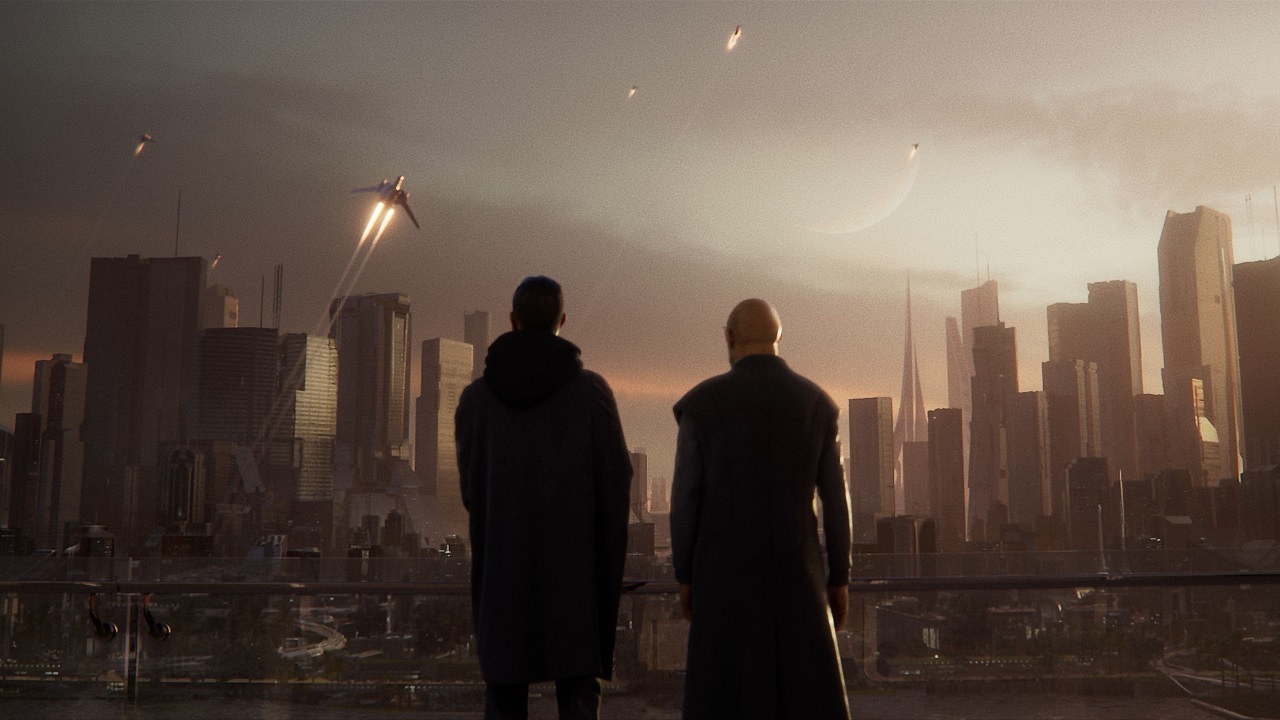More Science, Less Fiction - Exodus RPG Will Tackle Time Dilation
The phenomenon of time dilation was a big part of the story in Interstellar. Now this perplexing issue has been taken up by developers from Archetype Entertainment, making it a pillar of the story in their game Exodus. What's it all about and what impact will it have on story and gameplay?

For generations, interstellar travels have been fueling our imagination. It's no surprise, then, that they have become firmly established in cultural works, making appearances in books, movies, and video games. Some writers and directors attempt to explain the principle of their actions in a more or less scientific manner (unfortunately, most often - less), while others don't concern themselves with such matters, compelling their audience to engage in the so-called "suspension of disbelief."
The Mass Effect series is one of the productions that has performed quite well in this field. BioWare developers made a great effort to solidify faster-than-light travel in the scientific field, giving all the credit to the fictional element zero and the "mass effect" it causes (under certain conditions). However, this iconic series not only ignores a variety of physical phenomena associated with traveling at high speeds but also various paradoxes generated by "superluminal travel."
One of the first is "time dilation," which was challenged by the developers from Archetype Entertainment, who are currently working on an action RPG called Exodus. Before we check what consequences the implementation of this phenomenon will have in the mentioned game, we first need to examine it and find out what it's really about.
What is time dilation?
Time dilation is a phenomenon described in Albert Einstein's theory of relativity, the existence of which has already been empirically confirmed through various experiments and observations. In simple terms, it involves variations in time measurement due to the speed and/or mass of an object.
Time dilation causes time to pass more slowly for the traveler as their speed increases during the journey. So if we were to travel at a tremendous speed to a planet hundreds of thousands of light years away from Earth, what from our perspective could take months or even weeks (depending on the speed), at our home... whole centuries or even millennia could pass.

Objects in a strong gravitational field can also experience time dilation; the stronger the field, the slower time passes for the object within its influence. That's exactly why on the International Space Station (ISS), where there is microgravity, time flows a bit faster than on Earth. The characters' brief visit to a planet orbiting the black hole Gargantua in Interstellar resulted in 23 years passing on the distant Endurance ship. The planet experienced a much stronger gravitational field than the ship "parked" much farther away.
Speed of light kind of problems
Furthermore, as we approach the speed of light (which is the maximum speed), both the energy demand and the mass of the accelerating object increase, approaching infinity, as also implied by Einstein's theory of relativity. This creates several issues that BioWare attempted to work around in the Mass Effect games. For this purpose, the developers brought to life the so-called "zero element," which, under the influence of electricity, emits dark energy that allows the creation of fields of the titular mass effect. The mass was used to increase or decrease the mass of objects in their area, consequently enabling travel at superluminal speeds.
Future at cost of present
The phenomenon of time dilation is intended to be a pillar of the story told in Exodus. The Archetype Entertainment project, developed under the umbrella of Wizards of the Coast, is overseen by the developers of the Mass Effect series, including James Ohlen and Drew Karpyshyn (the main writer of the first and second installments of Commander Shepard's adventures).
In the Exodus universe, humanity has to flee the dying Earth and seek a new home in a dangerous galaxy. The primary threat is posed by Celestials, human beings who are supposed to be separated from the rest of the escapees by 25,000 years of development. The developers attribute this difference to the phenomenon of time dilation.
There's no time to lose
It's difficult to predict how the developers will justify the fact that time seemed to pass faster for the Celestials than for the other people, given that both had to escape from Earth. One possible solution might involve placing the new cradle of humanity near a supermassive object surrounded by an extremely strong gravitational field (such as a neutron star or black hole), while also allowing the Celestials to inhabit an area with lower gravity.
Throughout the game, we will play as the Traveler and our objective will be to steal a weapon that belongs to the Celestials and use it for protection. Carrying out this mission will require making tough decisions. Tough with a big "T" (at least in the long run), as contrary to Mass Effect and other similar games, the decisions we make will have truly long-lasting consequences, spanning decades or even centuries. In Exodus, saving the future entails leaving the present behind and essentially living "beyond time."

Time dilation is set to play a crucial role in the plot of the described game and leave a massive impact on the gameplay. During space travels, it's important to remember that time passes differently for us during the journey than it does in the place we departed from... and also in the place we are heading to. The phenomenon being discussed will cause time to pass differently in other corners of the universe, where whole years, decades, or even centuries may go by while only hours or days pass in our character's perception. When leaving a particular place, we have to accept that we may never see many of the people we met there again. It's also worth remembering that by choosing the direction, we won't be sure who is waiting for us at the destination.
Problems and challenges faced by developers
However, the obstacles that the Traveler will encounter are nothing compared to the problems that developers create for themselves by challenging the phenomenon of time dilation. First, to avoid getting stuck in a corner, they will need to carefully consider the design of quests. It will probably be essential to completely give up basic delivery missions, which entail traveling to the far reaches of the galaxy and coming back to the client to report the task's completion and collect the reward. Second, to live up to the grand announcements, the developers must also address the issue of the repercussions of our choices, which impact not only the immediate future but the destiny of entire generations. Third, building the storyline around the phenomenon of time dilation is likely to lead to a significant upheaval of unforeseeable plot twists â?? on a level unprecedented in video games thus far.
Fourth, traveling through the galaxy in Exodus is expected to cause it to transform unrecognizably right before our eyes. The developers are likely to restrict our abilities in this regard to avoid a situation where flying around the galaxy could advance the game time by millions of years within an hour or two. However, even in such a scenario, character designers face a truly daunting task to prevent the reappearance of "clones" of the NPCs that were there before when returning to a specific location after decades.

Exodus could have a promising future and change the way gamers perceive interstellar travel forever. The time will show whether the developers will rise to the challenge and allow time dilation to play a significant role, or if they may diminish its impact to only affect the story at crucial moments.
3

Author: Christian Pieniazek
Started working with Gamepressure.com in August 2016. Although the Game Encyclopedia has been his pride and joy from the beginning, he also writes for the Newsroom and the Editorial section. Gained professional experience through a now-defunct service, in which he worked for almost three years. Graduated in Cultural Studies at the AGH University of Krakow. Runs his own business, jogs, cycles, loves mountain hiking, is a fan of nu metal, is interested in space, and of course, enjoys playing games. Feels best in action games with an open world and RPGs, although won't turn down good racing or shooting games.
Latest News
- End of remote work and 60 hours a week. Demo of Naughty Dog's new game was born amid a crunch atmosphere
- She's the new Lara Croft, but she still lives in fear. Trauma after Perfect Dark changed the actress' approach to the industry
- „A lot has become lost in translation.” Swen Vincke suggests that the scandal surrounding Divinity is a big misunderstanding
- Stuck in development limbo for years, ARK 2 is now planned for 2028
- Few people know about it, but it's an RPG mixing Dark Souls and NieR that has received excellent reviews on Steam, and its first DLC will be released soon


